Why We Invested in Primus
2025-02-20T17:04:47
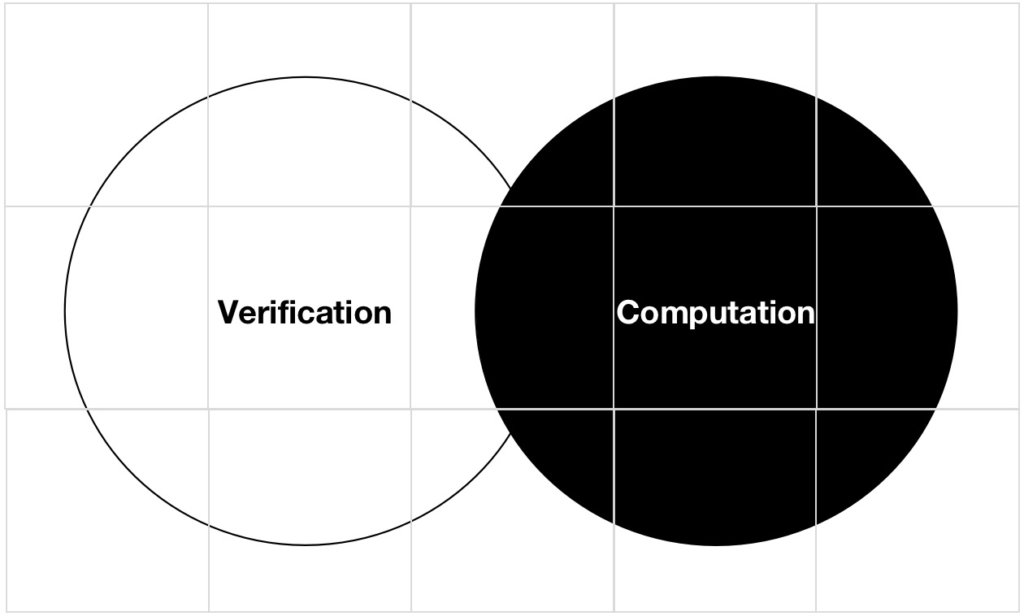
The rapid evolution of cryptographic infrastructure is redefining the digital landscape, and Primus (formerly Pado) is at the forefront of this transformation. At Dispersion Capital, we support foundational infrastructure companies tackling the most critical challenges at the intersection of Web2, Web3, and AI. Our investment in Primus reflects our belief in their unparalleled potential to bridge these domains and unlock mass adoption of decentralized technologies.
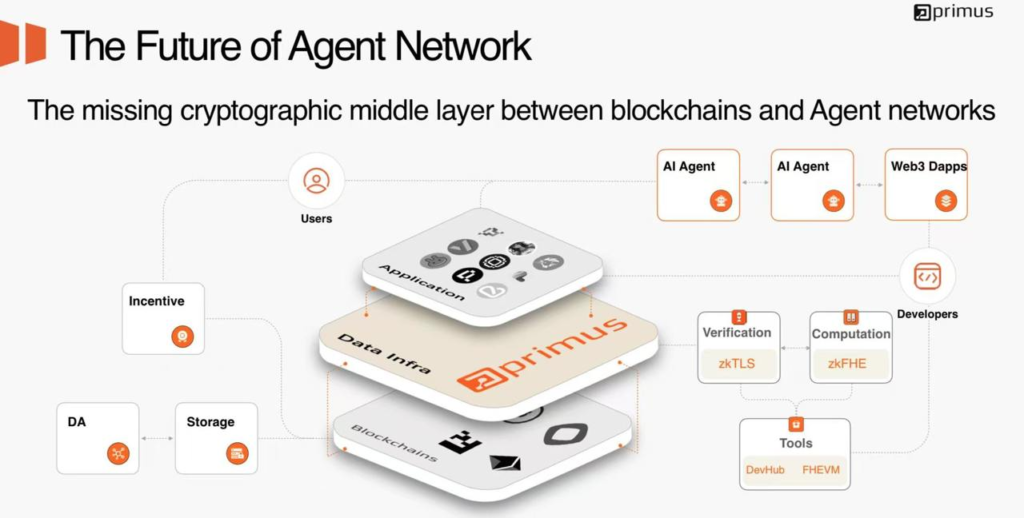
A Commitment to Openness and Collaboration
The cryptographic industry is navigating a contentious debate over intellectual property, openness, and innovation. The ongoing dispute between Zama and Sunscreen highlights the tension between protecting proprietary technology and fostering open collaboration.
Primus stands apart by championing openness and collaboration. Unlike competitors who lean on aggressive IP enforcement, Primus embraces an innovation model rooted in community engagement, transparency, and developer empowerment. This approach ensures trust within the developer and enterprise ecosystems and accelerates the adoption of their technologies across industries. Primus’s ethos resonates deeply in a field where collaboration is essential for advancing science and building sustainable ecosystems.
Primus avoids the reputational risks of heavy-handed IP enforcement by focusing on inclusivity and partnership and instead fosters a community-driven approach to innovation. This commitment positions Primus as a trusted leader in the cryptographic space, capable of driving real-world impact without stifling competition or innovation.
The world is at a technological inflection point. As we stand at the convergence of Web2, Web3, and AI, the need for secure, privacy-preserving, and trustless infrastructure has never been more urgent. Dispersion Capital’s mission is to identify and support foundational infrastructure companies that address these challenges head-on. Our investment in Primus (formerly Pado) reflects this mission, as we believe their cryptographic innovations zkTLS and zkFHE are the key to unlocking mass adoption of decentralized technologies across industries, developers, and enterprises.
Bridging the Divide Between Web2 and Web3
For years, Web3’s promise has been hindered by fundamental limitations: lack of scalability, interoperability, and, most critically, trust. Enterprises and large Web2 conglomerates have shown interest but remain cautious due to the absence of secure and verifiable systems that integrate seamlessly with their existing infrastructure. As a result, Web3 has been confined mainly to speculative applications in DeFi and NFTs, with limited real-world adoption.
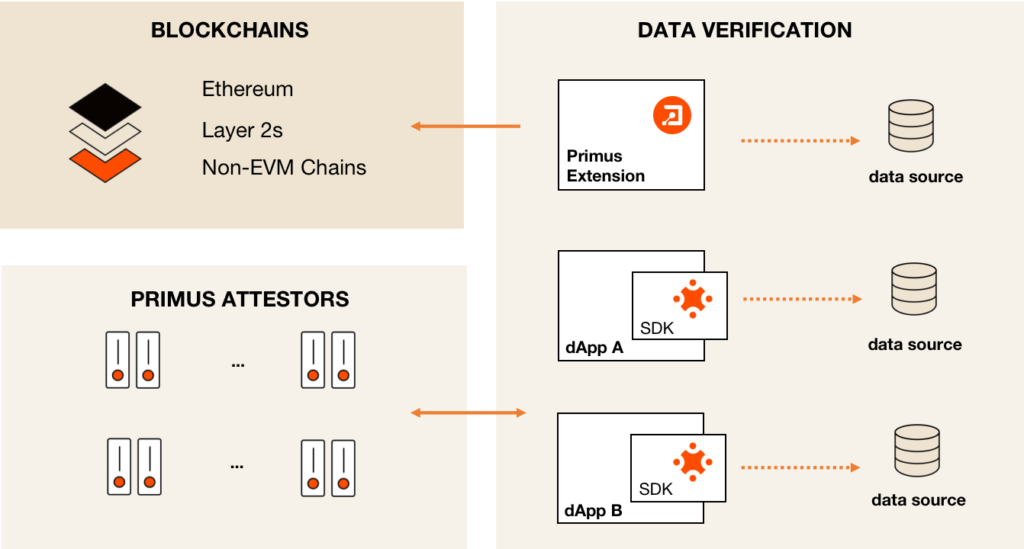
Primus’s dual innovations, zkTLS and zkFHE, are designed to bridge this gap. zkTLS provides secure, trustless verification and real-time data authentication, enabling enterprises to adopt decentralized technologies without sacrificing compliance or efficiency. zkFHE, on the other hand, allows privacy-preserving computation on encrypted data, unlocking unprecedented possibilities for secure collaboration, AI-driven insights, and multi-agent networks. Together, these technologies form the cryptographic backbone of a decentralized internet, one that enterprises, developers, and end-users can trust and adopt at scale.
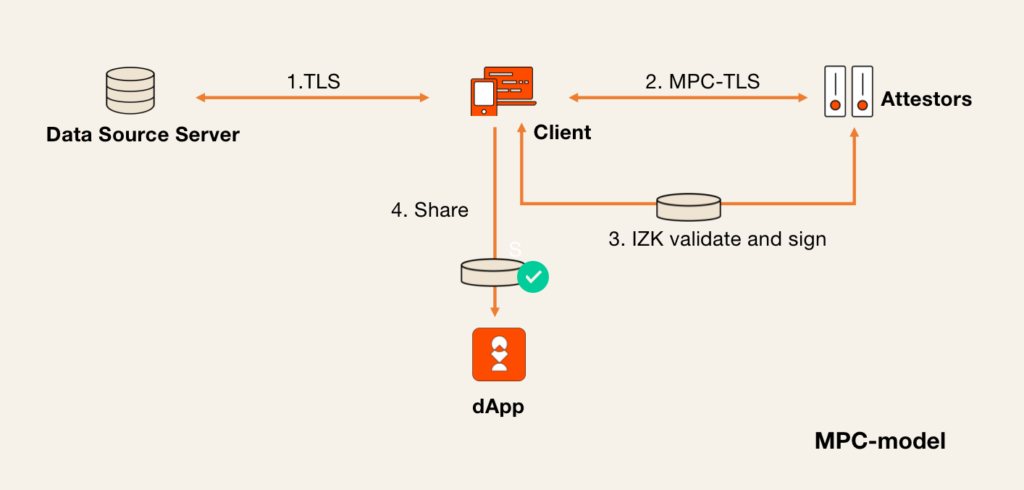
The First Unified Cryptographic Framework
Primus is the first to unify zkTLS and zkFHE into a single cryptographic framework, delivering unmatched speed, scalability, and seamless integration. This breakthrough eliminates the traditional trade-offs between privacy, verifiability, and usability, making secure, encrypted computation both practical and accessible.
By combining zkTLS for real-time verifiable data authenticity and zkFHE for encrypted computation, Primus ensures that enterprises and developers can seamlessly integrate trustless, privacy-preserving computation into existing infrastructure. This paves the way for a new era of decentralized AI applications, where AI agents can securely interact, process sensitive data, and execute verifiable transactions without compromising privacy or security.
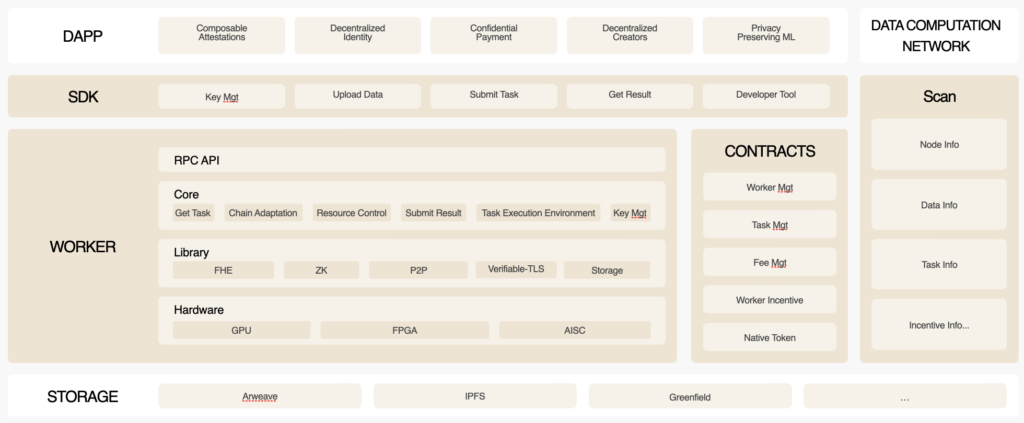
Enterprise Adoption: Why Primus is Essential
1. Data Privacy and Compliance
Regulatory frameworks like GDPR and CCPA demand that companies handle sensitive data securely. Traditional tools fall short of providing real-time, verifiable privacy guarantees. Primus’s zkTLS not only ensures secure data exchanges but also provides the transparency and auditability required to meet stringent compliance standards. This is transformative for industries like healthcare, finance, and supply chain.
2. Interoperability Across Systems
Current enterprise systems rely heavily on centralized protocols like TLS, which were never designed for decentralized or hybrid infrastructures. zkTLS seamlessly integrates with Web2 technologies while enabling trustless interactions in decentralized environments. This hybrid compatibility makes it the perfect gateway for enterprises transitioning to Web3.
3. Privacy-Preserving Collaboration
Many industries require secure ways to collaborate on sensitive data. For example, pharmaceutical companies conducting joint research or banks managing cross-border transactions must share insights without exposing confidential information. Primus’s zkFHE allows computations on encrypted data, enabling secure and efficient collaboration while maintaining privacy.
Scaling AI with Verifiable & Private Computation The AI economy requires a secure foundation where models can interact with data while preserving confidentiality. Current AI systems rely on centralized models and unsecured data flows, making them vulnerable to manipulation and privacy risks. Primus solves this by integrating zkTLS for real-time, verifiable AI agent interactions and zkFHE for computation on encrypted data. This combination unlocks privacy-preserving AI analytics, secure autonomous agent networks, and new models for collaborative AI.
Developers: The Foundation of Adoption
Primus understands that developers are the cornerstone of any technological revolution. By providing developer-friendly tools like APIs, SDKs, and chain-agnostic integrations, Primus lowers the barriers to adoption. These tools allow developers to deploy zkTLS and zkFHE effortlessly, enabling them to build innovative applications that leverage decentralized technologies. From blockchain startups to Fortune 500 companies, Primus ensures that its solutions are accessible to all.
zkTLS: The Catalyst for Mass Adoption
Primus’s go-to-market strategy is centered on zkTLS, a modern, decentralized evolution of the TLS protocol that secures the internet today. zkTLS creates a seamless bridge between Web2 and Web3, enabling:
- Secure Data Flows: Financial institutions can use zkTLS for verifiable credit scoring and fraud detection.
- Healthcare Collaboration: Secure patient data sharing for research and diagnostics without exposing sensitive information.
- Blockchain Scaling: Ensuring trustworthy transactions, smart contracts, and cross-chain interactions to enable mainstream dApps.
Endgame: zkFHE: Unlocking Privacy-Preserving Computation
While zkTLS drives immediate adoption, zkFHE represents the long-term vision. Fully Homomorphic Encryption (FHE) allows encrypted data to be processed without decrypting. Primus’s zkFHEVM (Fully Homomorphic Encryption Virtual Machine) enables developers to build applications that:
- Train AI on Encrypted Data: AI models can collaborate across encrypted datasets from multiple organizations, unlocking insights without compromising privacy.
- Execute Confidential Smart Contracts: Blockchain networks can securely run complex smart contracts involving sensitive data, such as medical records or trade secrets.
- Enable Agent-to-Agent Networks: Autonomous agents can securely collaborate, exchanging encrypted data to make real-time decisions.
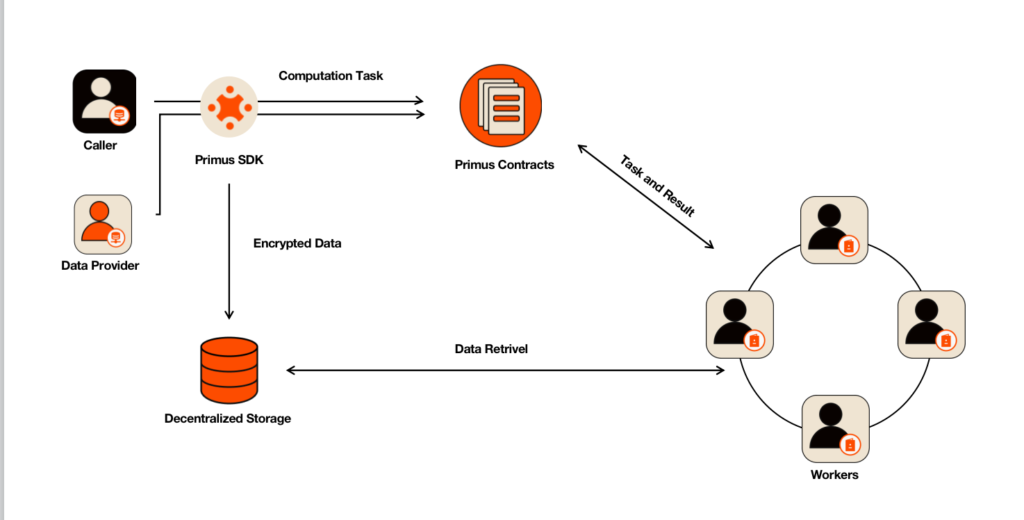
Unparalleled Performance & Scalability Primus is not only making privacy-preserving computation possible but also practical. zkTLS is 10x faster than DECO, ensuring real-time verifiable data authentication, while zkFHE achieves 340x faster proving times than existing FHE solutions. This performance leap is crucial for AI-driven applications and confidential transactions, providing scalability previously unattainable in decentralized cryptography.
Technical Innovations: Redefining Cryptographic Infrastructure
Primus’s zkTLS and zkFHE technologies represent a significant leap forward, addressing critical challenges enterprises, developers, and decentralized systems face. These innovations go far beyond incremental improvements, paving the way for a more secure and trustless digital landscape.
The zkTLS protocol sets a new standard for secure communication by enabling real-time data flow verification and authentication. Unlike traditional TLS, which focuses on centralized systems, zkTLS bridges the gap between Web2 and Web3. This allows enterprises to adopt decentralized technologies while maintaining compatibility with existing systems and ensuring compliance with regulatory standards. Its cutting-edge performance, built on algorithms from the Garble-Then-Prove research, achieves speeds 10 times faster than alternatives like DECO, making it ideal for large-scale, real-world applications.
On the other hand, the zkFHE stack revolutionizes privacy-preserving computation. By combining Fully Homomorphic Encryption (FHE) with zero-knowledge proofs, zkFHE ensures data remains encrypted during computation while proving its integrity. This is particularly vital for industries like healthcare and finance, where secure collaboration and compliance are essential. Primus takes this further by enhancing FHE scalability with optimized bootstrapping methods and flexible encryption schemes, overcoming many limitations seen in competitors such as Zama’s TFHE framework.
These advancements are not merely technical achievements but practical solutions enabling transformative applications. From training AI on encrypted datasets to creating secure multi-agent networks, Primus’s innovations lay the groundwork for a new era of decentralized systems.
Competitive Advantages and Unique Features of Primus
Primus stands out from its peers by combining advanced cryptographic research with practical, scalable implementations. This unique approach ensures it addresses challenges competitors have yet to solve, establishing Primus as a clear leader.
- Open and Collaborative Ecosystem
While competitors like Zama have faced criticism for aggressive intellectual property tactics, Primus takes a different path by fostering openness and collaboration. This approach builds trust with developers and enterprises while avoiding reputational risks. Primus accelerates innovation by prioritizing community engagement and ensures widespread technology adoption. - Comprehensive zkFHE Framework
The zkFHE stack developed by Primus supports a range of cryptographic schemes, offering flexibility that surpasses Zama’s TFHE-focused approach. This adaptability enables batching, handling large plaintexts, and hybrid computation models, making it suitable for diverse applications, from federated AI learning to decentralized logistics. - Primus’s Developer-First Approach
- Developer-First Innovation with Proven Traction Primus prioritizes developer accessibility with open-source SDKs, chain-agnostic integrations, and enterprise-friendly tools that make privacy-preserving cryptography easy to adopt. This focus has already attracted a growing ecosystem:
- 200K+ users on the Primus zkTLS extension
- 40K+ Twitter followers actively engaging with the community
- 20K+ Discord members contributing to discussions and development
This traction underscores how Primus is rapidly becoming the go-to cryptographic solution for developers and enterprises alike.
- Developer-Friendly Tools
Primus emphasizes developer accessibility, providing robust APIs, SDKs, and chain-agnostic integrations. These tools lower the technical barriers, allowing developers to seamlessly incorporate zkTLS and zkFHE into their projects. This contrasts with Sunscreen’s reliance on custom languages and less-performant solutions, which can deter broader adoption. - Unmatched Performance
Primus addresses key performance gaps found in other solutions by integrating zero-knowledge proofs with FHE. Its advancements in proof generation, homomorphic automorphism, and verifiable computation deliver unmatched efficiency, making it ideal for enterprise-grade deployments. - Broad Application Potential
While some competitors focus on narrow use cases like on-chain computations, Primus’s solutions extend to hybrid and off-chain environments. This versatility opens doors for applications in gaming, healthcare, and supply chain industries, positioning Primus as the infrastructure provider of choice for organizations transitioning to decentralized systems.
Primus isn’t just another technology company—it’s building the foundation for trust and privacy in the digital age. By focusing on usability, scalability, and collaboration, Primus addresses the real-world needs of enterprises, developers, and decentralized ecosystems. Its comprehensive approach to cryptographic and decentralized computing is poised to redefine what is possible in this space.
AI Agents: The Decentralized Infrastructure Drivers
The emergence of AI agents is reshaping decentralized technologies. Acting as autonomous digital counterparts, these agents are poised to drive the next wave of blockchain and edge computing adoption. Primus’s zkTLS ensures that AI agents operate autonomously and verifiably, guaranteeing their actions are trustworthy and transparent. Meanwhile, zkFHE enables privacy-preserving agent-to-agent collaboration, allowing these systems to unlock new use cases.
Bringing Trust to AI Agents The rise of AI-driven systems is reshaping decentralized technologies, but a fundamental issue remains: Can we truly trust AI agents? Without cryptographic guarantees, AI agents could be manipulated or exploited. Primus zkTLS ensures that AI agents operate autonomously and verifiably, allowing them to securely interact with external APIs, execute transactions, and process real-time data with provable authenticity. Meanwhile, zkFHE empowers agent-to-agent networks, enabling AI models to compute on encrypted data without compromising privacy. This cryptographic backbone is what makes privacy-preserving, decentralized AI ecosystems possible.
For example:
- Gaming: AI agents can verify in-game rewards based on player behavior, ensuring fairness.
- Finance: Agents can manage portfolio adjustments in real-time without exposing sensitive data.
- Healthcare: Agents can securely analyze patient data for diagnostics while maintaining compliance.
Founders: The Architects of Trust
Primus is led by an extraordinary team of cryptographers and technologists with unparalleled expertise in FHE, ZKP, and decentralized systems. They wrote the standards and the libraries for some of the most widely used approaches in both FHE and TLS.
- Xiang Xie, Co-Founder and Cryptographer: A globally recognized cryptographer with a Ph.D. focused on FHE. Xiang has authored over 30 research papers, many presented at leading cryptography conferences. His groundbreaking contributions include zkTLS (over 10x faster than competing protocols like DECO) and major advancements in FHE bootstrapping, widely adopted by state-of-the-art systems like TFHE.
- Xiao Wang, Chief Cryptographer and Advisor: An assistant professor at Northwestern University and NSF CAREER award winner. Xiao is a leader in secure multi-party computation (MPC) and zero-knowledge proofs. His EMP-toolkit is widely used in the cryptographic community and by companies like Meta and Chainlink.
- Yu Yu, Advisor: A professor at Shanghai Jiao Tong University and a renowned researcher in cryptography. Yu leads one of the top-ranked cryptography groups globally. He has advanced the field of post-quantum cryptography and secure multiparty computation.
- Yupeng Zhang and Yuncong Hu, Academic Collaborators: These leading researchers specialize in zero-knowledge proofs and applied cryptography. Their expertise in zkSNARKs, zkFHE, and cryptographic frameworks ensures that Primus remains at the cutting edge of the field.
This team has not only advanced the theoretical underpinnings of zkTLS and zkFHE, but has also translated these innovations into practical, developer-friendly solutions that bridge the gap between Web2 and Web3.
The Dispersion Capital Thesis: Why We Invested
Primus aligns perfectly with Dispersion Capital’s mission to back foundational infrastructure companies that enable trust, privacy, and decentralization. Here’s why we believe Primus will define the next era of digital infrastructure:
- Immediate Impact with zkTLS: By addressing the urgent need for verifiable, trustless data interactions, zkTLS paves the way for mass adoption of decentralized technologies.
- Visionary Potential of zkFHE: zkFHEVM represents a transformative breakthrough, enabling privacy-preserving computation at scale and unlocking entirely new possibilities for decentralized AI and enterprise collaboration.
- Bridging Web2 and Web3: Primus’s solutions provide the critical infrastructure enterprises need to transition to decentralized systems without disrupting their existing workflows.
- Unparalleled Team: The technical depth and execution capability of the Primus founders make them uniquely qualified to tackle these challenges.
The next wave of technological innovation will be built on trust, privacy, and decentralization. Primus is not just developing tools; they are creating the foundational infrastructure for the future internet. By enabling secure enterprise adoption, empowering developers, and driving innovation through AI agents, Primus is poised to become a cornerstone of the decentralized digital world.
Dispersion Capital is proud to support Primus on this transformative journey. We believe their work will redefine how data is secured, processed, and shared in the years to come, driving mass adoption of decentralized technologies across industries and geographies.
